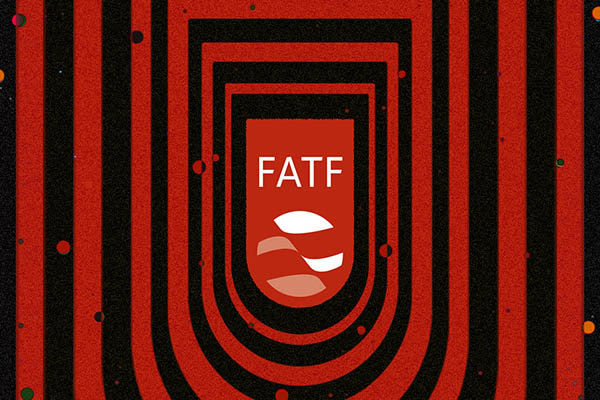
File photo
Global watchdog says Islamabad needs to further demonstrate that it is acting against the senior leadership of U.N.-designated terror groups
The Paris-based Financial Action Task Force (FATF) on Thursday announced that Pakistan will remain on its ‘grey list’, as Islamabad needs to further demonstrate that it is acting against the senior leadership of U.N.-designated terror groups.
Pakistan has been on the grey list, which necessitates increased global monitoring, since June 2018 over perceived deficiencies in its counter-terror financing and anti-money laundering regimes. Announcing the decision after a plenary meeting of the watchdog, FATF President Marcus Pleyer said that Pakistan needed to complete two concurrent action plans comprising 34 items.
“It has now addressed or largely addressed 30 of the items,” he said. “Its most recent action plan from June this year, which largely focused on money laundering deficiencies, was issued after the FATF’s regional partner—the Asia-Pacific Group—identified a number of serious issues,” he said, noting that overall “Pakistan is making good progress” and had addressed four of the seven items conveyed by the Asia-Pacific Group. Among these, he said, were financial supervisors conducting on- and off-site checking of non-financial sector businesses, and enacting legislation to improve international cooperation.
Of the original action plan devised in 2018, Pleyer said that Pakistan had largely addressed 26 out of 27 items. “Pakistan has taken a number of important steps but needs to further demonstrate that investigations and prosecutions are being pursued against the senior leadership of U.N. designated terror groups,” he said, emphasizing that these requirements would aid the government in stopping corruption, and preventing terrorism and organized criminals from benefitting from crimes.
To a question on whether there was any risk of Pakistan being blacklisted over its failure to complete the action plans, the FATF president reiterated that the country had completed 30 items out of 34 on two action plans. “This shows the clear commitment of the Pakistani government so there is no discussion on blacklisting Pakistan and the FATF urges the country to address the remaining four items,” he said.
Per routine, Energy Minister Hammad Azhar hailed Pakistan’s retention on the grey list as “good news.” Claiming that Islamabad had managed to address four of seven points on the Asia-Pacific Group action plan within “one cycle,” he said this was “unprecedented” in FATF history. “For the terror financing action plan: 26 out of 27 items already complete. Majority of the countries believe that we have completed the action plan,” he claimed on Twitter. “We are getting closer to consensus numbers in spite of challenges. Our technical stance will be vindicated soon,” he added.
Similarly, the Finance Division issued a statement emphasizing that the FATF had recognized the “considerable progress” made by Pakistan on both action plans. Noting that Islamabad had completed four of seven items on the 2021 action plan “much before” the schedule prescribed by the FATF, it reiterated that progress on the remaining three items was “well underway” and they, too, would be completed ahead of schedule.
The remaining items in the 2021 action plan include investigation and prosecution of money laundering cases, confiscation of assets and U.N. listings, it said. The Finance Division statement noted that “considerable work” had been carried out on the remaining items of both action plans, adding that the FATF would review Pakistan’s progress in February 2022.
Listing and delisting
The FATF president, during his press conference, announced that Botswana and Mauritius had been whitelisted after fulfilling the watchdog’s requirements. He said that Zimbabwe had also completed its action plan and was awaiting an on-site inspection.
Meanwhile, Jordan, Mali and Turkey have been added to the greylist and have all agreed to action plans. On Turkey, Pleyer said an assessment was carried in 2019 that outlined serious issues regarding money laundering and terror financing.
